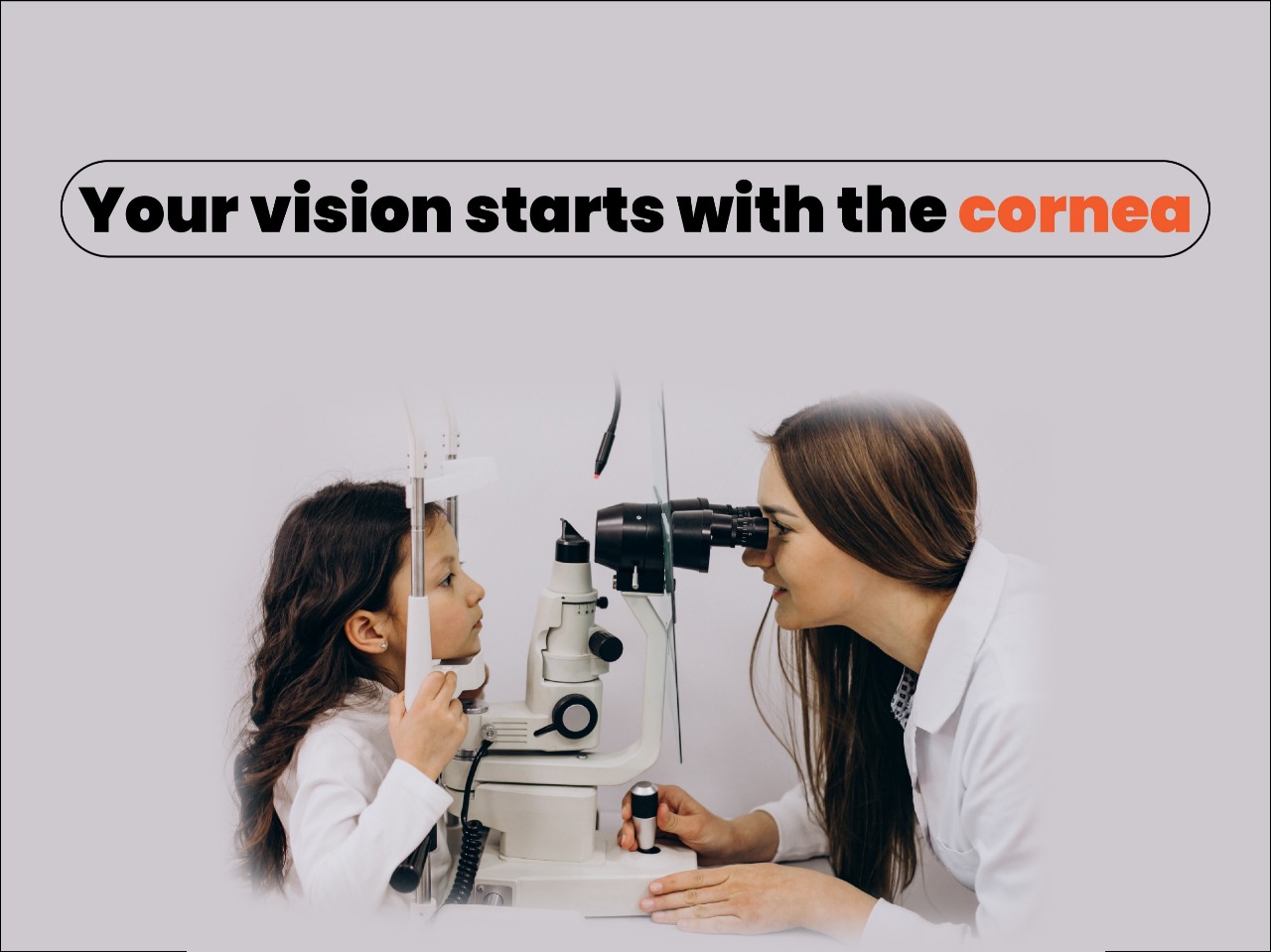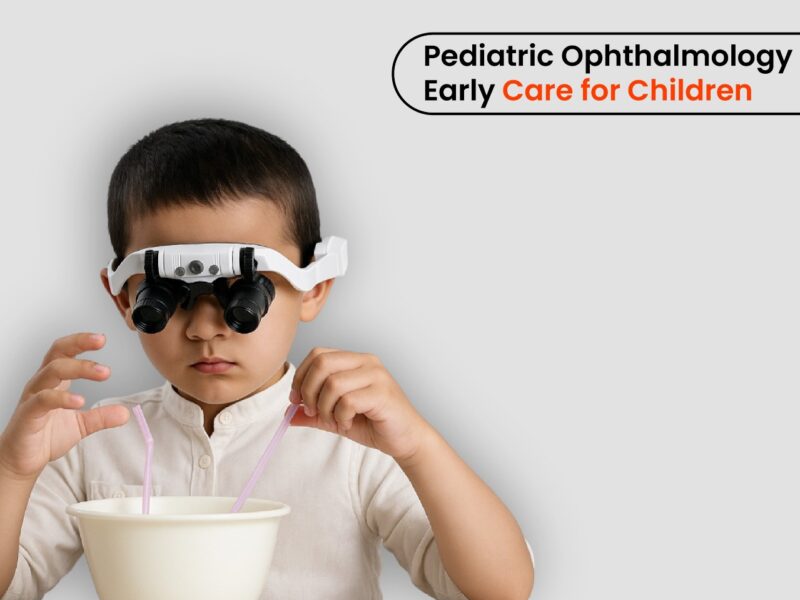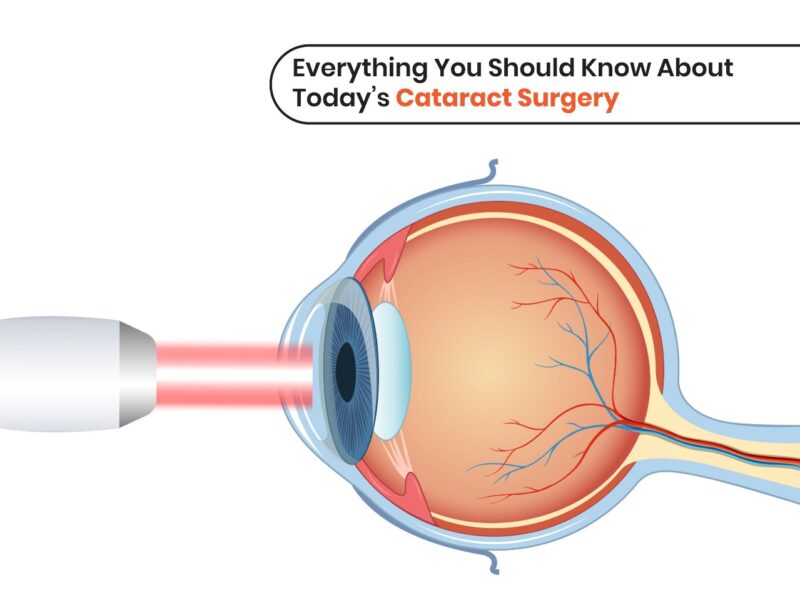Comprehensive Cornea Care at Medivision Eye Care Hospital: Anatomy, Disorders, Treatments
The cornea, the transparent, dome-shaped front layer of the eye, plays a vital role in protecting the eye and focusing light to provide clear vision. Far more than just a protective shield, the cornea acts as a powerful refractive surface that directs light onto the retina, helping you see the world in sharp detail.
Understanding the cornea is key to appreciating the intricate mechanics of human vision. Whether you’re a medical student, a patient, or simply someone intrigued by eye health, learning about the cornea reveals just how essential it is to maintain good vision.
At Medivision Cornea Treatment in KPHB, Hyderabad, we recognize the cornea’s significance and provide advanced diagnostics and treatments to keep it healthy. Our expert team is dedicated to educating patients and delivering personalized care for all corneal conditions. In this post, we’ll take a closer look at the cornea’s structure, function, and critical role in vision clarity.
Anatomy of the Cornea: An In-Depth Look
Understanding the Layers of the Cornea – A Closer Look by Medivision Eye Care Hospital, KPHB
Though small in size, the cornea has a remarkably intricate structure made up of five distinct layers, each essential for preserving its clarity and refractive power.
The outermost layer, the epithelium, accounts for roughly 10% of the cornea’s thickness. It acts as a protective barrier against dust, bacteria, and environmental damage while absorbing nutrients and oxygen from tears.
Beneath this lies Bowman’s layer, a transparent collagen sheet that adds structural integrity and shields the deeper corneal layers. The stroma follows—comprising nearly 90% of the cornea’s thickness—providing strength and playing a major role in light refraction.
Descemet’s membrane, a thin yet resilient layer, offers protection against infections and injuries. The innermost layer, the endothelium, maintains corneal clarity by regulating fluid balance within the stroma.
At Medivision Eye Care Hospital in KPHB, Hyderabad, understanding corneal anatomy helps us diagnose and manage a wide range of corneal conditions with precision and care.
Corneal Health: Key Influencing Factors
Clear vision depends greatly on the health of the cornea, as it plays a vital role in focusing light onto the retina. Several internal and external factors can impact corneal health.
Environmental elements such as excessive sunlight, dust, and dry air may cause irritation or damage. Using protective eyewear can help shield the eyes from these harmful conditions.
Lifestyle habits also play a role. Smoking can lead to dryness and increase the risk of infections, while a lack of vitamin A in the diet may hinder the cornea’s ability to heal properly after injury.
Contact lens users should maintain strict hygiene. Improper use or cleaning of lenses can result in corneal infections and other complications.
Additionally, systemic conditions like diabetes and autoimmune disorders may negatively affect corneal function and structure.
At Medivision Eye Care Hospital in KPHB, Hyderabad, we emphasize the importance of early detection and prevention. Understanding these influencing factors can help you take proactive steps to preserve corneal and overall eye health.
Common Corneal Disorders and Their Symptoms
The cornea is vulnerable to various conditions that can significantly impact vision. Recognizing the symptoms early is essential for timely diagnosis and treatment at Medivision Eye Care Hospital in KPHB, Hyderabad. Below are some common corneal disorders:
Keratitis : Inflammation or infection of the cornea, often caused by bacteria, viruses, or fungi. Symptoms include redness, pain, blurred vision, and light sensitivity. It is more common in contact lens users.
Corneal Ulcer : Usually a complication of severe keratitis, this open sore on the cornea leads to pain, redness, discharge, and blurred vision.
Dry Eye Syndrome : Occurs when tear production is insufficient. Symptoms include burning, stinging, redness, and a gritty feeling in the eye.
Keratoconus : A progressive condition where the cornea thins and bulges outward, causing distorted vision, glare, and light sensitivity.
Fuchs’ Dystrophy : A degenerative disorder of the corneal endothelium, often leading to blurry vision, especially in the morning.
Regular eye check-ups are crucial for early detection and effective treatment of this condition
Treatment Options for Corneal Disorders
The treatment of corneal disorders depends on the specific condition and its severity. At Medivision Eye Care Hospital in KPHB, Hyderabad, a wide range of advanced treatment options are available to manage corneal diseases effectively:
Medications : Infections such as keratitis are often treated with antibiotic, antifungal, or antiviral eye drops or ointments. Anti-inflammatory medications like corticosteroids may also be prescribed to reduce swelling and irritation.
Artificial Tears : Lubricating eye drops can relieve symptoms of dry eye syndrome by enhancing moisture on the eye’s surface.
Specialized Contact Lenses : Rigid gas-permeable or scleral lenses are used to improve vision and corneal shape in conditions like keratoconus.
Corneal Cross-Linking : This minimally invasive procedure helps strengthen corneal tissue and halt the progression of keratoconus.
Corneal Transplant (Keratoplasty) : In advanced cases with scarring or thinning, a transplant may be required to restore vision using healthy donor tissue.
Early diagnosis through regular eye examinations greatly improves treatment outcomes. If you notice redness, pain, or changes in vision, consult a specialist immediately to prevent complications.
The Importance of Regular Eye Examinations for Corneal Health
Routine eye check-ups at Medivision Eye Care Hospital in KPHB, Hyderabad, are essential for safeguarding corneal health and maintaining clear vision. These examinations help detect early signs of corneal conditions, allowing for timely intervention and more effective treatment.
A typical exam includes a visual acuity test to assess how well you see at various distances. Additionally, a slit-lamp examination provides a detailed view of the cornea, iris, lens, and eyelids, helping identify issues like keratitis, ulcers, or keratoconus.
For contact lens users, regular visits are vital to prevent complications such as infections, corneal scarring, or vision loss caused by ill-fitting or improperly used lenses.
Even in the absence of symptoms, scheduling regular eye exams—ideally every one to two years, or more frequently if you have conditions like diabetes or a family history of eye disease is a smart, preventive approach to lasting eye health.
Tips for Maintaining Corneal Health
Preserving your corneal health is key to maintaining sharp and comfortable vision. Here are practical recommendations from Medivision, Eye Care Hospital in KPHB, Hyderabad:
Routine Eye Exams : Detect corneal issues early through regular professional check-ups.
Proper Contact Lens Hygiene : Clean, disinfect, and replace lenses as prescribed. Never sleep in them unless advised.
Use Protective Eyewear : Shield your eyes from injury during sports or hazardous work.
Eat a Nutrient-Rich Diet : Include vitamin A, C, and E-rich foods like carrots, leafy greens, and nuts.
Stay Hydrated : Drink sufficient water to prevent dry eyes.
Avoid Smoking : Smoking harms the cornea and increases the risk of eye diseases.
At Medivision Eye Care Hospital in KPHB, Hyderabad, we’re committed to helping you maintain lifelong eye health through expert care, advanced diagnostics, and personalized treatment. Book your appointment today to keep your vision and corneas in top condition.



